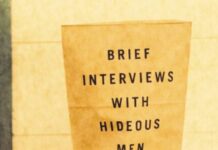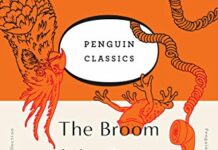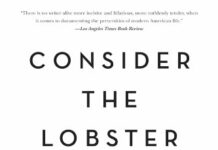
Ebook Info
- Published: 2012
- Number of pages: 294 pages
- Format: PDF
- File Size: 1.35 MB
- Authors: David Foster Wallace
Description
Brilliant, dazzling, never-before-collected nonfiction writings by “one of America’s most daring and talented writers” (Los Angeles Times Book Review): Both Flesh and Not gathers fifteen of Wallace’s seminal essays, all published in book form for the first time.Never has Wallace’s seemingly endless curiosity been more evident than in this compilation of work spanning nearly 20 years of writing. Here, Wallace turns his critical eye with equal enthusiasm toward Roger Federer and Jorge Luis Borges; Terminator 2 and The Best of the Prose Poem; the nature of being a fiction writer and the quandary of defining the essay; the best underappreciated novels and the English language’s most irksome misused words; and much more.Both Flesh and Not restores Wallace’s essays as originally written, and it includes a selection from his personal vocabulary list, an assembly of unusual words and definitions.
User’s Reviews
Reviews from Amazon users which were colected at the time this book was published on the website:
⭐This is one of three narrative nonfiction / essay collections published by the brilliant, sui generis David Foster Wallace. A Supposedly Fun Thing and Consider the Lobster are both better than this one, but Both Flesh and Not is still a fabulous read that–like all his books–somehow manages [usually with incredible success] to be entertaining and deeply thought-provoking at the same time. There are a few pieces I’d consider duds, and it seems like this one is quite a bit less suffused with verve and significance and pure joie de vivre than those prior two. Given that this was published after his death, if I’m not mistaken, you don’t have Wallace’s rabid perfectionism to sift out the duds. There are a few self-indulgent pieces that don’t offer a whole lot–at least compared with the typical dizzyingly spectacular standards set by this wordslinger-god. Still very enjoyable though, and worth reading [after his first two essay collections, that is].
⭐So, a writer you like dies. Let’s say that they die young. Once you get over the tragedy, you can be mad. It makes sense. You wanted this person to continue to entertain you until the end of your days.Now that they’re dead, they can’t do that, and you get angry.So of course the question to ask is: does this person have anything sitting around that can be issued?David Foster Wallace was nice enough to leave some droppings. First there was an incomplete novel, “The Pale King”. It was about a Midwestern IRS employee in the 80s. It was about as fun as splitting together the footnotes to Infinite Jest with the tax code. I couldn’t tell you much more. I only got 30 pages in.For the truth though, I didn’t like IJ. I spent a whole summer struggling through it wondering what was so great about all of this – finding flashes of brilliance while working on my carpal tunnel problem. In fact, I have liked DFW more for his essays than his fiction. His two collections that came out while he was alive popped with verve and straight-up awesomeness. He was a more literate version of Chuck Klosterman.So it is my luck that “Both Flesh and Not” is a collection of his nonfiction.It is good.In places.With caveats.It is not an organic whole. Some of the pieces are well-thought and developed criticism or insightful sports criticism, while there is a couple of paragraphs that were put up on the internet in the late nineties. This is more of an assemblage or a collage, but it does show the breadth and depth of DFW’s mind and concerns.I’m not going to go piece-by-piece, but one of the last works in the collection I think contains a valediction and a summation of his life (Though utterly impossible): “In sum, to really try to be informed and literate today is to feel stupid nearly all the time, and to need help.” (Deciderization 2007 – A Special Report, 316)We miss you, Dave.
⭐Any Wallace publication is an event especially since his unique voice has been prematurely silenced. Unfortunately, Both Flesh and Not is a not altogether successful effort sweeping together previously uncollected pieces. The fifteen essays, some as thin as a few pages in length, are supplemented by many pages of word lists that Wallace apparently kept updating on his computer.More than half of the essays are devoted to literary subjects including an NYT Book Review of a Borges biography, the introduction to the 2007 edition of Best American Essays and a lengthy, and somewhat challenging, discussion of David Markson’s Wittgenstein’s Mistress. In another entry, Wallace presents the young novelists of the eighties as products of university training and television ubiquity before predicting that, despite these challenges, his peers “are going to make art, maybe great art, maybe even great art change.”The most accessible works in this book, however, include a tennis piece originally titled “Federer as Religious Experience.” On full display here are Wallace’s deep knowledge of and love for the game of tennis. In his paean to the skill of Federer, Wallace tells of the evolution of the power baseline game made possible by improved racket technology while giving some idea of what it looks like to stare down the barrel of a 90 mph volley in real life as opposed to the foreshortened view of a television screen.Wallace improbably makes a readable entry out of Terminator 2. This movie has seminal impact, he argues, because it is the first great example of special effects porn (6 scenes of action between vast stretches of banality.) Wallace posits the Inverse Cost and Quality Law: “The more lavish and spectacular a movie’s special effects, the shittier the movie is going to be in all non-F/X aspects.”His genius is most conspicuously on display in his Wittgenstein analysis and as he brings his own unique perspective to often discussed public issues like the HIV virus and 9/11. Wallace poses unasked questions from unusual angles. In Back in New Fire, the author wonders if the danger of heterosexual AIDS will increase sexual passion by adding risk. “Nobody’d claim that a lethal epidemic is a good thing,” says Wallace, but “an erotically charged human existence requires impediments to passion, prices for choices.” A short entry about 9/11 asks whether we should consider a minimum baseline vulnerability to terrorist attack as part of the price of the American idea much as highway deaths are an assumed cost of the mobility and autonomy conferred by the automobile.”We need narrative like we need space-time. It’s a built in thing,” submits Wallace. His fiction and non fiction support this vision. Both Flesh and Not is not his finest effort but it is Wallace, and that makes it readable at worst and, in its finest moments, compelling.
⭐I had read some of the essays in this collection in other places. My first ever introduction to DFW was in his introduction to the Best American Essays that talked about how one goes about deciding what essay is a best essay. I’ve read a lot of Wallace’s work but I think I finally figured out his Shtick, Wallace will find a very complex subject and then painstakingly make it simple and explain it to you. He will then point out what is absurd or foolish about said subject and leave you feeling like you are the smartest person in the room because you “get” what is so funny about something that you never knew existed a few paragraphs before. His talent for this is on display here in his essays on tennis, language and an outstanding essay about Terminator 2 which turns into an indictment on feminism in films, James Cameron as a sellout etc. Wallace is also at his best as a sensitive human being in essays about our post 9/11 reaction and how we have turned sex into a commodity. I’m proudly going to keep this next to my almost complete library of DFW stuff and I’m glad I took the time to read it.
⭐This is an excellent collection of DFW’s non-fiction writing. The highlight, for me, is the first essay: Federer Both Flesh and Not. It’s a beautifully written and deeply insightful essay. You need not be a tennis fan to enjoy this; indeed, it might make a tennis fan of you. Without wishing to be hyperbolic, I’d go as far as saying that, if you value good writing, you should read this book. The majority of the other essays in this collection are also very enjoyable. Given the breadth of topics which DFW wrote about, it’s unlikely–though perfectly possible–that you will love every single one. But that really shouldn’t stop you from reading this book.
⭐worth buying for the piece on terminator 2
⭐He was the master.
⭐excellent
⭐Perhaps the most striking fact about David Foster Wallace (1962-2008), apart from his stratospheric intelligence, was the range of his interests. How many writers capable of writing a history of the mathematics of infinity would also find it worthwhile to produce an 160 page work on rap music? Who else with the ability to provide a summary of Wittgenstein’s private language argument could also analyse the market for hardcore pornography?During his lifetime, Wallace published two collections of essays, A Supposedly Fun Thing I’ll Never Do Again (1997) and Consider The Lobster (2005). It is difficult to convey the flavour of these books, but if you wanted a preview I’d suggest having a look at one of the videos of the author reading his work on YouTube (for example, the 28 minute video ‘Another Random Bit’.)Wallace was certainly an uneven writer, and some of his work is infected by the pretentious diction of Academic English. Nor was he a particularly successful critic: his least interesting essays are those dealing with other writers.But his best work (for example, the pieces on the Illinois State Fair and cruise liners in A Supposedly Fun Thing) is truly remarkable, as good as anything that Orwell wrote.Both Flesh and Not (2012) collects fifteen essays which appeared in various American periodicals between 1988 and 2007. The range of topics is characteristically diverse – tennis, fiction, cinema, Wittgenstein, mathematics – although the average standard is perhaps lower than in the first two collections. In a sense, this is not surprising: the essays in Both Flesh and Not are (for the most part) those that were not selected for inclusion in the earlier collections. As such, they are, in a sense, the Second Team.Still, they are well worth reading. Wallace is one of the few recent writers of whom one seriously wonders if he was a genius.
Keywords
Free Download Both Flesh and Not: Essays in PDF format
Both Flesh and Not: Essays PDF Free Download
Download Both Flesh and Not: Essays 2012 PDF Free
Both Flesh and Not: Essays 2012 PDF Free Download
Download Both Flesh and Not: Essays PDF
Free Download Ebook Both Flesh and Not: Essays




